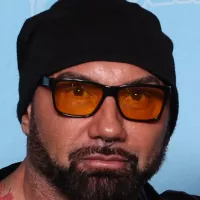A closer look at the defining struggles that shaped Nicolas Sarkozy's life and career.
Nicolas Sarkozy served as President of France from 2007 to 2012. A prominent figure in French politics, his presidency was marked by a pro-business agenda, reforms to the labor market, and a tough stance on immigration and crime. He played a key role in handling the Eurozone crisis and intervening militarily in Libya. Since leaving office, he has faced legal challenges and convictions related to campaign finance irregularities and corruption, which have significantly impacted his public image and legacy.
1905: Suggested Amendment to the 1905 Law on Separation of Church and State
In 1905, Sarkozy suggested amending the 1905 law on the separation of Church and State to enable public funding of mosques and other Muslim institutions, aiming to reduce their reliance on foreign money. However, this suggestion did not result in any concrete measures.
1973: Resolution 1973 adopted by the Security Council of the United Nations
On 17 March 2011, resolution 1973 was adopted by the Security Council of the United Nations, permitting the creation of a "no fly" zone over Libya, and for the undertaking of "necessary measures" for the protection of the country's civilian population. This was done at the behest of France.
2005: Civil Unrest and Controversial Remarks
In 2005, Sarkozy faced criticism for his handling of civil unrest, sparked by the accidental death of two youths. He was accused of inciting the unrest with inflammatory remarks, including calling young delinquents a "rabble" and suggesting cleansing minority suburbs with a Kärcher, which led to sharp criticism from the left wing and members of his own government.
2005: Support of the European Constitution Referendum
In 2005, Sarkozy, then president of UMP, supported a "yes" vote in the French referendum on the European Constitution; however, the "No" vote ultimately won.
July 2007: Extradition of Bulgarian Nurses and Agreements with Libya
In July 2007, Sarkozy announced the extradition of Bulgarian nurses detained in Libya, in exchange for security, health care, and immigration pacts, along with a $230 million MILAN antitank missile sale with MBDA. This deal drew criticism and calls for a parliamentary investigation.
2007: Alleged Libyan interference in the 2007 French elections.
In 2020, Nicolas Sarkozy was charged with corruption by French prosecutors in two cases, notably concerning alleged Libyan interference in the 2007 French elections.
2007: Connection to alleged Libyan financing of the 2007 presidential campaign
On 25 September 2025, Nicolas Sarkozy was sentenced to five years in prison after being found guilty of criminal conspiracy in connection with alleged Libyan financing of his 2007 presidential campaign.
September 2009: Warning at the U.N. Climate Summit
On September 22, 2009, Sarkozy warned that "We are on the path to failure if we continue to act as we have" at the U.N. Climate Summit.
March 2011: France actively engages against Gaddafi
In March 2011, Nicolas Sarkozy, after criticism for his initial reluctance to support the Egyptian and Tunisian revolutions, and influenced by Bernard-Henri Levy, became one of the first heads of state to demand Muammar Gaddafi's resignation. On 10 March 2011, Sarkozy welcomed Libyan National Transitional Council emissaries to the Elysée Palace, promising a no-fly zone and French military assistance to Libya.
May 2012: Sarkozy concedes election to Hollande
In May 2012, Nicolas Sarkozy lost the presidential runoff election to François Hollande. Sarkozy received approximately 48.38% of the vote, while Hollande received 51.62%.
2016: British Parliament publishes report on military intervention
In 2016, the Foreign Affairs Committee of the British Parliament published a report stating that the military intervention in Libya was based on erroneous assumptions, that the threat of a massacre of civilian populations has been overvalued and that the coalition has not verified the real threat to civilians; It also claimed that Sarkozy's motivations were to serve French interests and improve his political standing in France.
2020: Sarkozy charged with corruption
In 2020, Nicolas Sarkozy was charged with corruption by French prosecutors in two cases, notably concerning alleged Libyan interference in the 2007 French elections. The charges relate to campaign costs exceeding the legal maximum and how they were paid.
September 2021: Sarkozy receives second conviction
In September 2021, Nicolas Sarkozy received a second conviction, resulting in a one-year sentence, which he is allowed to serve under home confinement. His lawyer stated he would appeal the decision.
December 2024: Sarkozy definitively sentenced to prison for corruption
On 18 December 2024, Nicolas Sarkozy was definitively sentenced to three years in prison, including one year to be served under electronic monitoring, for corruption and influence peddling. He has appealed the decision to the European Court of Human Rights.
September 2025: Sarkozy sentenced to prison for criminal conspiracy
On 25 September 2025, Nicolas Sarkozy was sentenced to five years in prison after being found guilty of criminal conspiracy in connection with alleged Libyan financing of his 2007 presidential campaign. He was acquitted of passive corruption, illegal campaign financing, and concealing the embezzlement of public funds.
October 2025: Sarkozy jailed in Paris
On 21 October 2025, Nicolas Sarkozy was jailed in Paris to begin a five-year sentence due to his connection with alleged Libyan financing of a presidential campaign, becoming the first French postwar leader to be incarcerated.
Mentioned in this timeline
Ukraine is a large country in Eastern Europe second in...

George W Bush the rd U S President - is...
The United States of America is a federal republic located...
Qatar is a country located on the Qatar Peninsula in...

Washington D C is the capital city and federal district...
Germany officially the Federal Republic of Germany is a Western...
Trending
2 months ago Rome man arrested after shooting at car in Verona, New York.

3 months ago Alex Eala Enters Hong Kong Campaign with Career-High Ranking, World No. 51

8 months ago Pete Carroll envisions Jeanty & Mostert as 'Thunder and Lightning' in Raiders backfield.

Dave Bautista born David Michael Bautista Jr is an American actor and retired professional wrestler He achieved significant recognition during...

3 months ago Ben Shelton faces Kamil Majchrzak at ATP Basel after Rune's setback: Predictions.

6 months ago Ryan Reynolds Hints at Deadpool Joining Avengers in Cryptic Instagram Post
Popular

Thomas Douglas Homan is an American law enforcement officer who...

William Franklin Graham III commonly known as Franklin Graham is...

Jupiter is the fifth and largest planet from the Sun...

XXXTentacion born Jahseh Dwayne Ricardo Onfroy was a controversial yet...

Instagram is a photo and video-sharing social networking service owned...

Kristi Noem is an American politician who has served as...